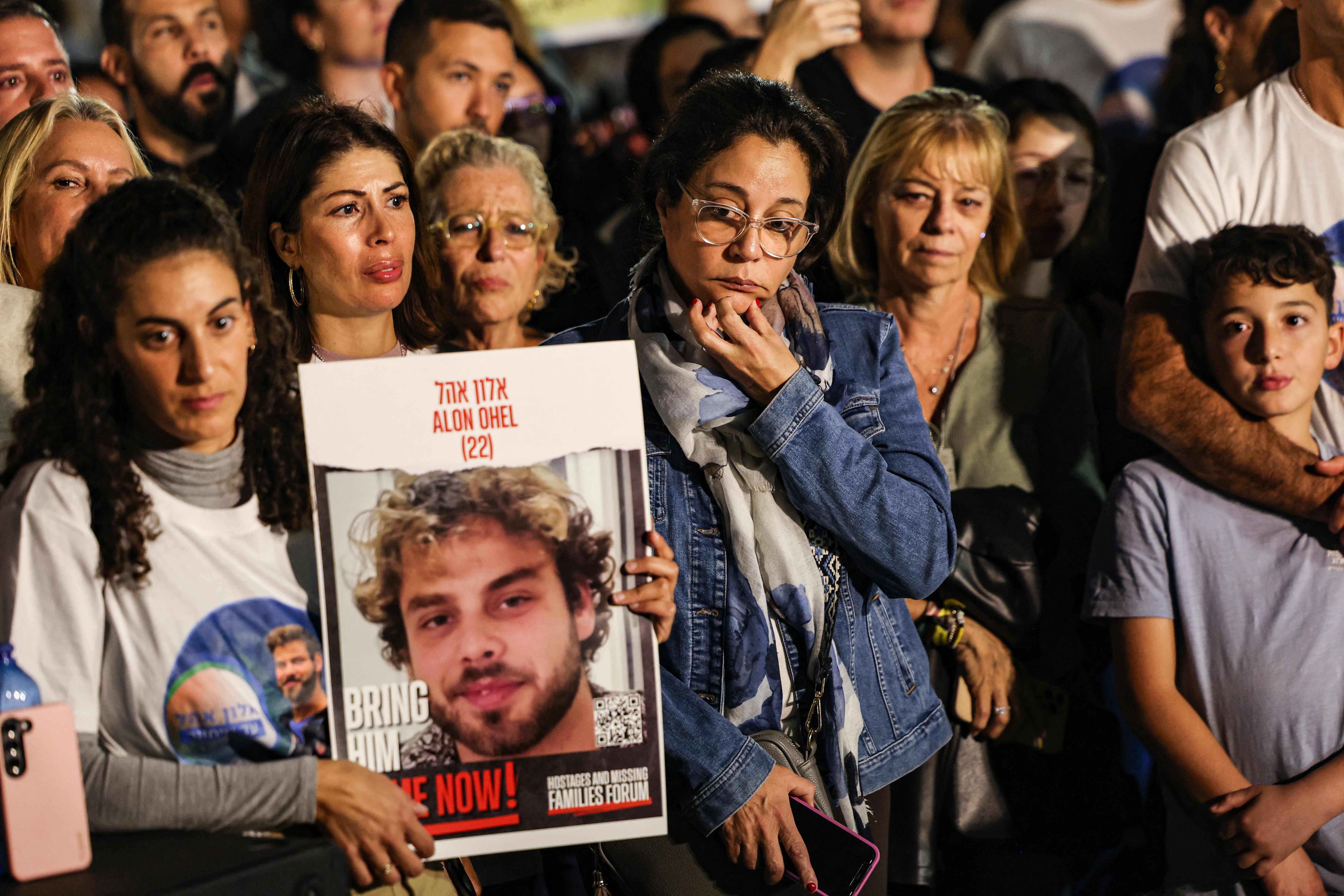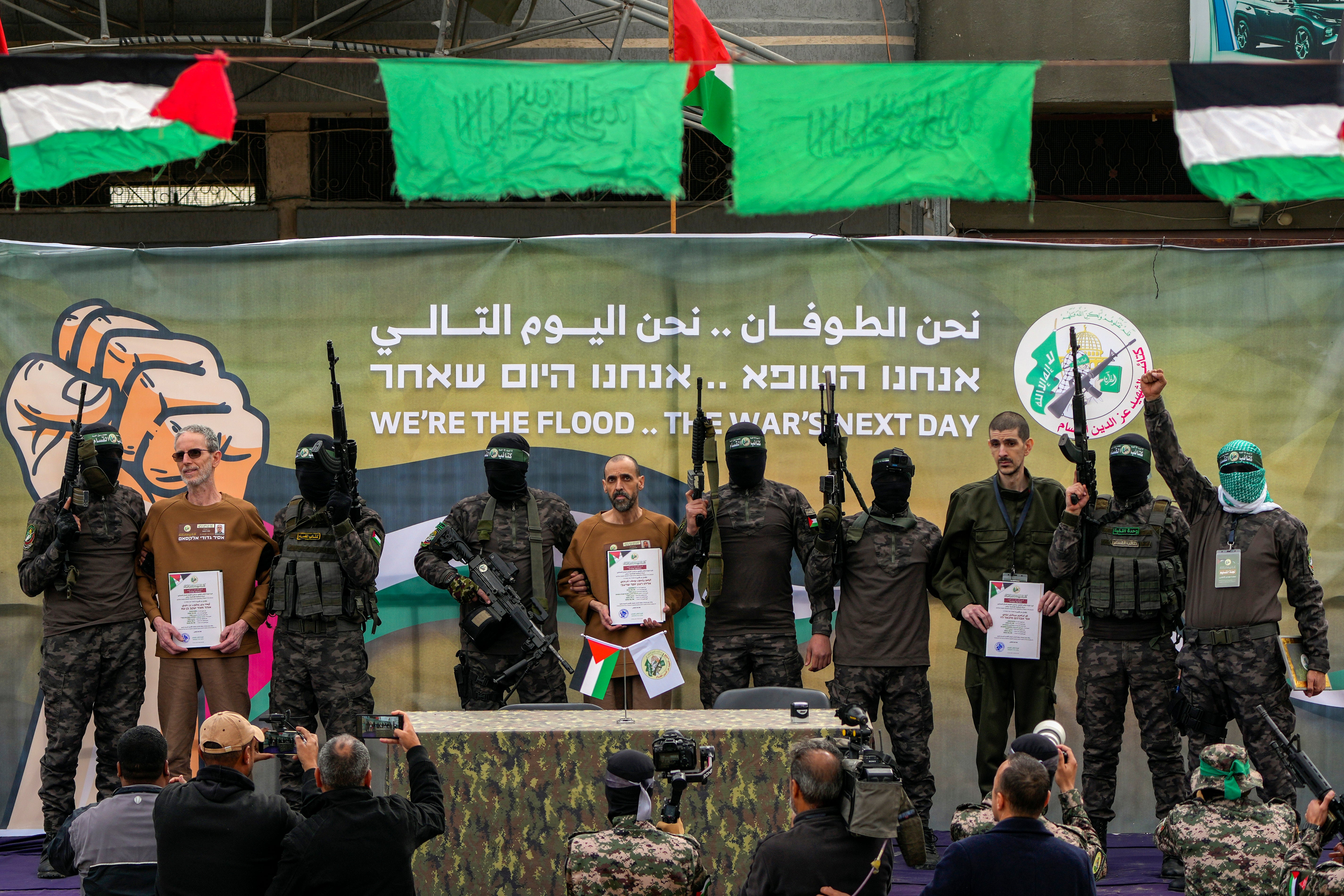Israeli hostage, shackled in Gaza tunnel, sends first message to family 14 months after capture
Alon Ohel’s shaken mum says he “hasn't seen sunlight” since being taken by Hamas

An Israeli hostage has managed to get a message to his family, more than 14 months after he was seized by Hamas gunmen.
Alon Ohel sent a birthday message to his sister through two other hostages who were held alongside him and freed on the weekend.
His mother, Idit Ohel, said she was overjoyed to know her son was alive.
However, now that she knew the details of his captivity — he was being held by Palestinian militants in a Gaza tunnel, away from sunlight — she was unable to sleep, she told Reuters.
"Alon has been in the tunnels all this time," she said.
"(He) hasn't seen sunlight, doesn't know the difference between day and night, has gotten little food — about one (piece of) bread a day."
Mr Ohel, a pianist, turned 24 on Monday. He was wounded by a grenade thrown into the bomb shelter where he had taken cover with almost 30 people on 7 October 2023 as they fled the attack led by Hamas gunmen on a music party.

"He cannot see in his right eye because of the shrapnel," Ms Ohel said.
"And there are shackles on his legs."
Those details were relayed to her by an army officer on Sunday from Or Levy and Eli Sharabi who were released on Saturday with another hostage, Ohad Ben Ami.
Their gaunt, pale and skeletal appearance shocked Israel. They looked in worse condition than most of the 18 other hostages freed since a ceasefire between Israel and Hamas began on 19 January.
Ofer Kalderon, 54, who was released on 1 February, said in a statement on Monday that he was held in tunnels, saw no daylight, received little food and was not allowed to shower.
The mother of Romi Gonen, released on 19 January, told Reuters her daughter had lost around 10kg and did not see daylight in captivity.
"There was food and they didn't get food," Meirav Leshem Gonen said.

Israel has rejected suggestions that hostages are deprived of food because of the humanitarian crisis in Gaza, brought on by its military offensive launched after the Hamas-led attack.
Reuters could not reach Hamas' armed wing for comment. The group said on 25 January it protects its captives' wellbeing.
Conditions in captivity
The conditions hostages are held in may have worsened since Israel carried out a military operation on 8 June 2024, in which four hostages were rescued from apartments in central Gaza and up to 210 Palestinians were killed.
In response, Hamas took more hostages into tunnels, one Israeli military official said. Abuse of male hostages increased, two security officials said.
On 3 July 2024, Islamic Jihad, which is allied with Hamas and also holds Israeli hostages, said it was worsening captives' conditions in response to the June 8 operation and to reported abuse of Palestinians held in Israeli detention.
Rights groups have reported grave abuses of Palestinians in Israeli detention since the Gaza war began. Israel's military is investigating several cases but rejects allegations of systematic abuse in its detention facilities.
In December, an Israeli Health Ministry report said hostages in Gaza had been subjected to torture, sexual abuse, starvation, burns and medical neglect.
Alon Ohel is not on the list of 33 hostages slated for release in the six-week first phase of the ceasefire, which is looking fragile even before the next phase has been agreed.
“He knows how to survive. He knows, but this is not right. He does not have enough time,” his mother said in tears.
“He has to come home alive. Please, bring him home.”
Join our commenting forum
Join thought-provoking conversations, follow other Independent readers and see their replies
Comments
Bookmark popover
Removed from bookmarks